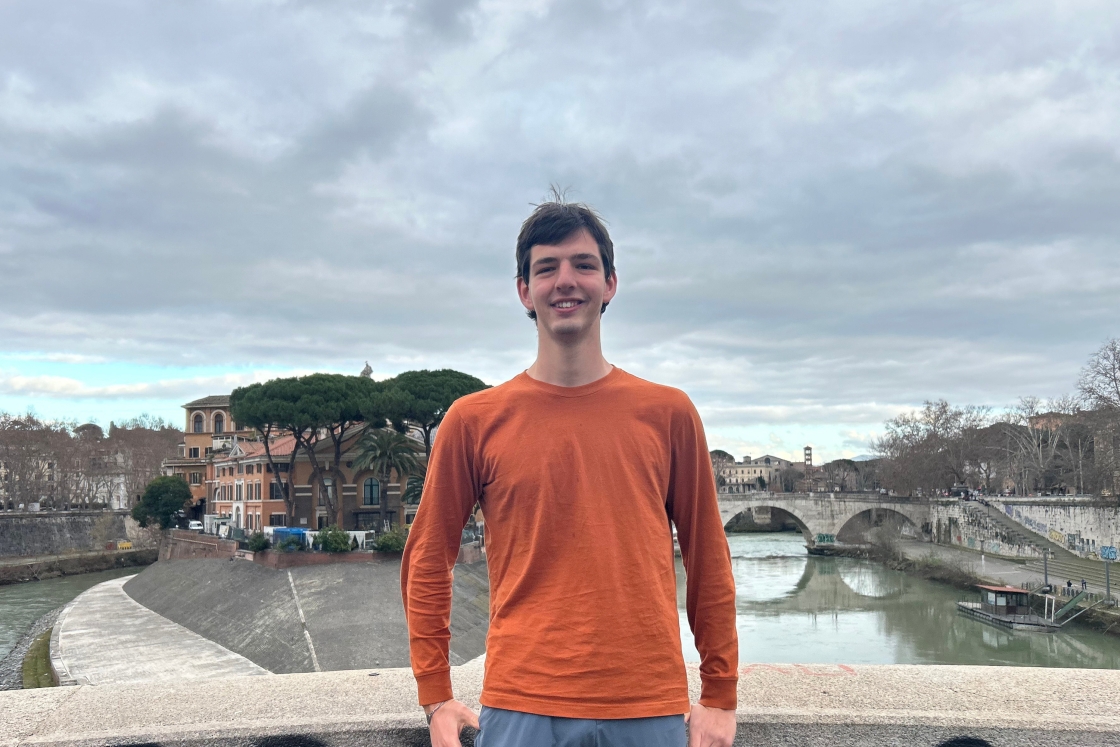Daniel Benjamin, U.S. Ambassador-at-Large and Coordinator for Counterterrorism, has been named the Norman E. McCulloch Jr. Director of the John Sloan Dickey Center for International Understanding. Ambassador Benjamin, who will remain in his current position at the State Department through the fall, begins at the Dickey Center on January 1, 2013. He succeeds Kenneth Yalowitz, who served as director for more than eight years before retiring in December 2011.
The principal advisor to Secretary of State Hillary Clinton on counterterrorism, Benjamin is the longest serving coordinator for counterterrorism in the more than 30 years the position has existed. During his tenure, the Office of the Coordinator was elevated to become the Bureau of Counterterrorism. During more than five years on the National Security Council staff in the 1990s, Benjamin served as a foreign policy speechwriter for President Bill Clinton and director for transnational threats. Additionally, he is an award-winning author who, before entering the Obama Administration, served as director of the Brookings Institution’s Center on the United States and Europe and senior fellow in Foreign Policy Studies.
“Dan Benjamin’s impressive experience and broad level of international engagement, research, and understanding fits well with the Dickey Center’s mission of providing a place for rigorous intellectual dialogue on the vital issues of the day,” said Provost Carol Folt.
During his time at the State Department, Benjamin’s office, under the leadership of Secretary of State Clinton, led the creation of the Global Counterterrorism Forum (GCTF), a new multilateral organization co-chaired by the United States and Turkey and with a membership of 27 other countries and the European Union. This new organization, the result of more than a year of concerted diplomatic efforts, is dedicated to capacity-building for civilian counterterrorism institutions and countering violent extremist ideologies.
Benjamin’s scholarly work on contemporary terrorism has been widely lauded. He co-wrote The Age of Sacred Terror (2002), which was awarded the Arthur Ross Prize of the Council on Foreign Relations, the largest American prize for a work on international affairs, and was named a New York Times Notable Book and a Washington Post Best Book of 2002. The Next Attack: The Failure of the War on Terror and a Strategy for Getting it Right (2005), which he also co-authored, was named a best book of the year by The Washington Post and The Financial Times and a finalist for the Lionel Gelber Prize. He is the editor of two other books, Europe 2030 and America and the World in the Age of Terror: A New Landscape in International Relations.
“I’m excited about coming to Dartmouth. The prospect of working with some of the best students and most talented scholars and researchers in the country is extraordinarily attractive. I very much hope I can both bring some of the ‘policy perspective’ to Dartmouth and help build bridges between Hanover and Washington—and other capitals as well,” said Benjamin. “I’m looking forward to making a contribution at an institution that I’ve long admired.”
He has appeared on numerous radio and television programs, ranging from 60 Minutes and The NewsHour with Jim Lehrer to The Oprah Winfrey Show. His article on issues such as American foreign policy, the Middle East, South Asia, and European affairs have appeared in major national and international newspapers and magazines as well as online publications. From 2001 to 2006, Benjamin was a senior fellow at the Center for Strategic and International Affairs in Washington, and prior to that, he was a Jennings Randolph Fellow at the United States Institute of Peace.
Benjamin began his career as a journalist, and held positions as Germany bureau chief for The Wall Street Journal, and Germany correspondent for TIME Magazine. Benjamin holds a Master of Arts degree from Oxford, where he was a Marshall Scholar. He completed his undergraduate work at Harvard, graduating magna cum laude.
Lindsay Whaley, acting associate provost for international affairs, anticipates that Benjamin will connect well with the Dartmouth community over a range of international issues. “Dan brings an impressive breadth of expertise and interests. He will be able to build on the Dickey Center’s existing strengths, as well as partner with faculty members to develop some new directions. I look forward to working with him.”
The Dickey Center ensures that a rigorous understanding of the world is an essential part of the Dartmouth experience, and prepares students for lifetime engagement in world affairs. In a world marked by globalization and often violent opposition to change, the promotion of international understanding has never been more important. The center seeks to bring diverse international voices to Dartmouth and assure global engagement for students through international internships, undergraduate research grants, and faculty research support. In announcing Benjamin’s appointment, Folt thanked Christianne Hardy Wohlforth, associate director at the center, who has served as acting director since December, and members of the search committee.
Committee members were: Andrew B. Bernard, professor of international economics at the Tuck School of Business; Marinn Carlson ’93, member of the Dickey Board of Visitors and partner at Sidley Austin LLP; Eric V. Edmonds, associate professor of economics; Carolyn Fraser ’86, Thayer ’87, assistant dean for academic and student affairs at the Thayer School of Engineering; Albert G. Mulley, Jr. ’70, director of The Dartmouth Center for Health Care Delivery Science; Deborah L. Nichols, professor of anthropology; Graziella Parati, professor of Italian, comparative literature, and women’s and gender studies; Antonio D. Tillis, associate professor of African and African American studies; Benjamin A. Valentino, associate professor of government; Ross A. Virginia, professor of environmental studies; and Lindsay Whaley, professor of linguistics and classics, and acting associate provost for international affairs.

